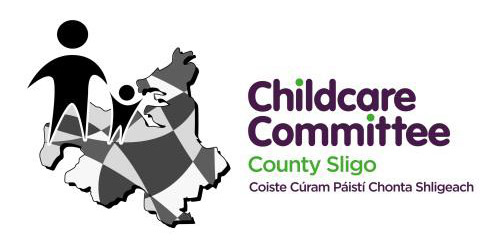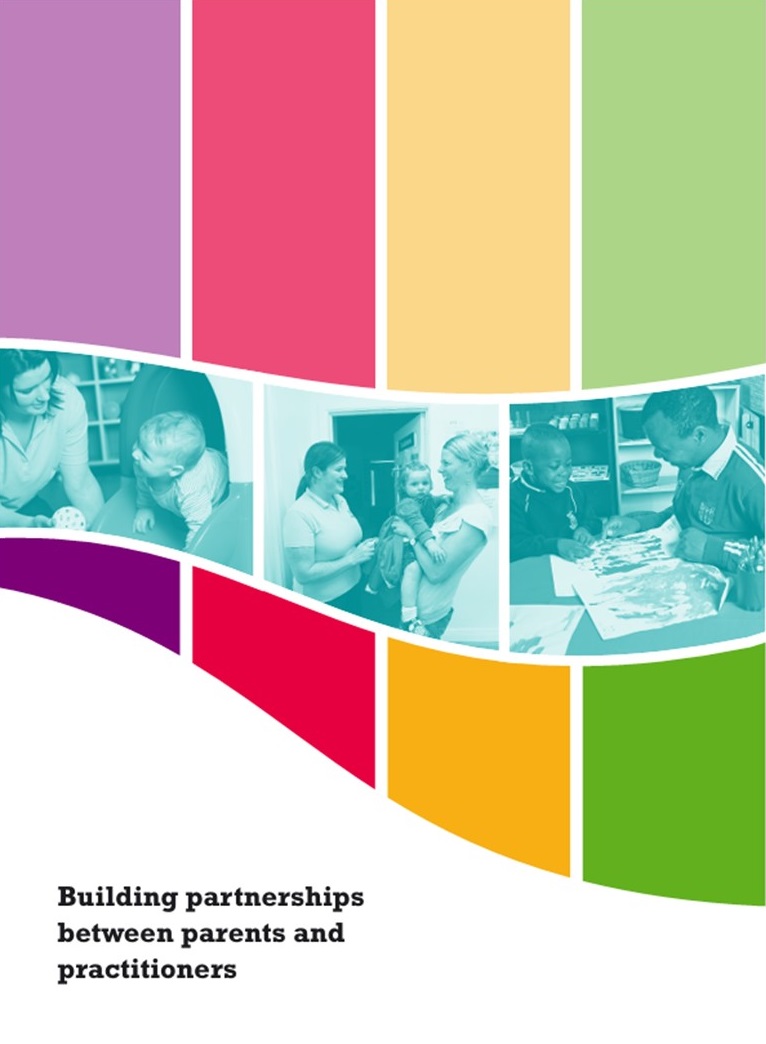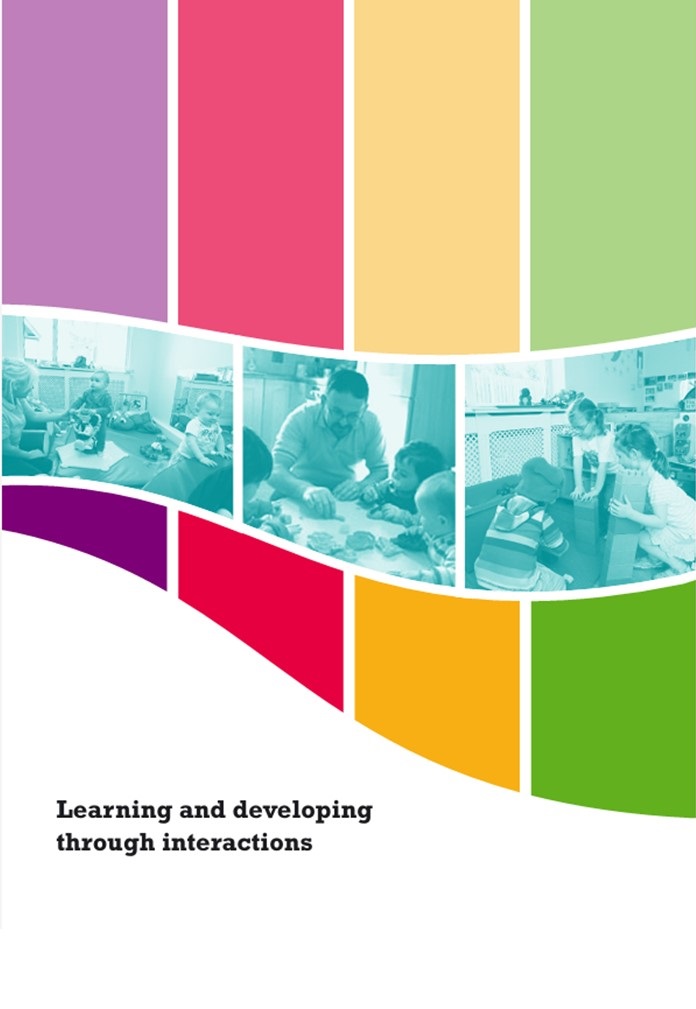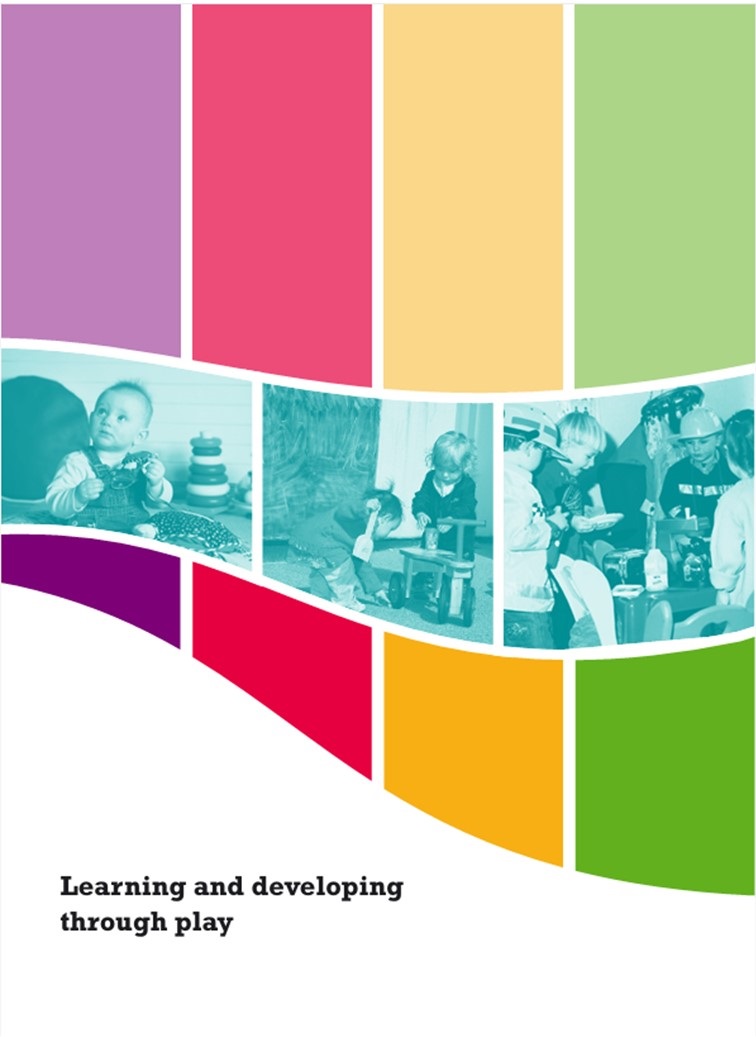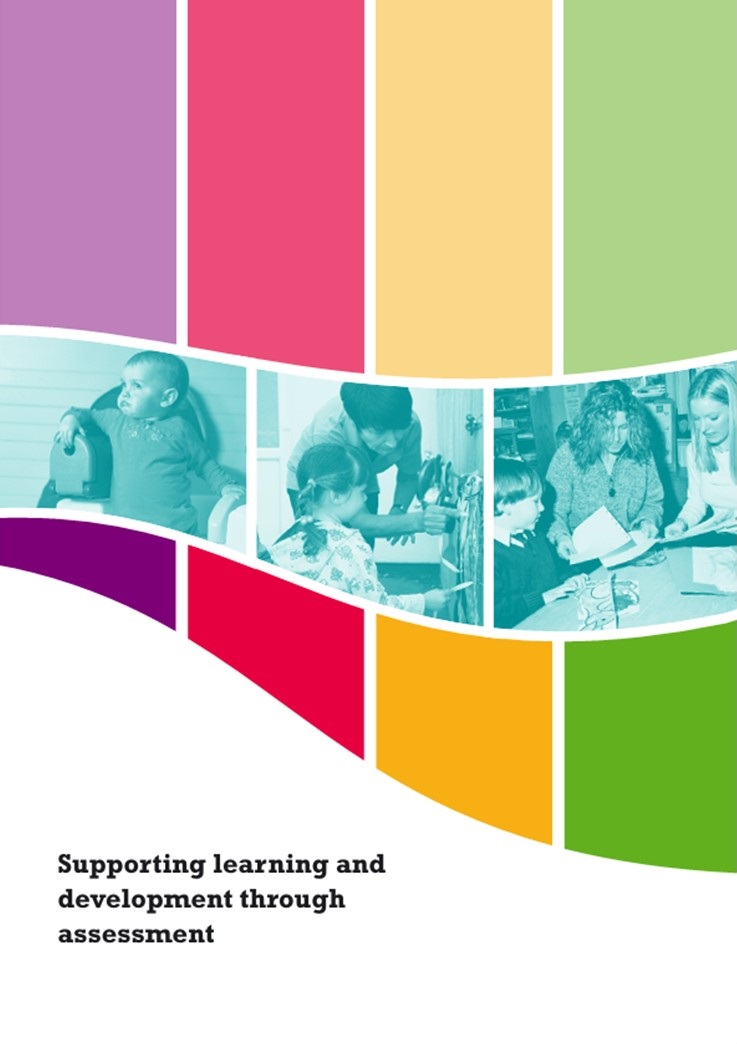Aistear / Síolta
What is quality practice in Childcare?
Quality practice in Childcare requires ongoing monitoring, development and review of the type of care being provided to the child.
The Early Years sector in Ireland is guided by frameworks, regulations and standards in order to set a minimum standard to the quality of care being received by children and their families. These include Siolta “the National Quality Framework”, Aistear “the National Curriculum Framework”, the Child Care (pre-school) Regulations 2006, the National Standards for pre-school services and Children First Guidelines.
Further to this each Early Years setting operates as a business using their own policies and procedures, they also comply with good codes of governance and company law.
Aistear: The Early Childhood Curriculum Framework

‘Aistear’, is the new curriculum framework in early year’s education. It is designed for children between birth and six years. Aistear was developed by the NCCA (National Council for Curriculum & Assessment) in partnership with the early childhood sector.
Aistear contains information for parents and practitioners that will help them plan for and provide challenging and enjoyable learning experiences that can enable all children to grow and develop as competent and confident learners in the context of loving relationships with others. Aistear describes the types of learning and development that are important for children in their early years, and offers ideas and suggestions on how these might be nurtured.
Aistear can be used in a range of settings, including children’s own homes, child-minding settings, crèches, playgroups, pre-schools, naíonraí, and infant classes in primary and special schools.
What is in Aistear?
The Aistear framework is broken up into principles and themes, guidelines for good practice, user guide, key messages from research papers and learning experiences. Visit the Aistear Website by clicking this link
Aistear is based on 12 principles of early learning and development. These are presented in three groups:
Group 1: Children and their lives in early childhood
The child’s uniqueness
Equality and diversity
Children as citizens
Group 2: Children’s connections with others
Relationships
Parents, family and community
The adult’s role
Group 3: How children learn and develop
Holistic learning and development
Active learning
Play and hands-on experiences
Relevant and meaningful experiences
Communication and language
The learning environment
The aim of Aistear is to help every child to grow and develop as a competent and confident learner. Aistear uses four themes that connect and overlap with each other to outline children’s learning and development.
These are the 4 main goals of Aistear and it proposes that they are achieved through the contexts of play and supported by caring, learning relationships with adults and peers. In this way it makes very strong links between care and education in the early years and firmly establishes the child’s right to a safe, stimulating, nurturing and play-based environment.
The Aistear framework is broken up into principles and themes, guidelines for good practice, user guide, key messages from research papers and learning experiences. To view the Full framework for Aistear click the button below
NCCA Mo Scéal – Moving from Pre-School to Primary School.
The NCCA worked with preschools and primary schools to develop the Mo Scéal: Moving from Preschool to Primary templates. Mo Scéal means ‘my story’ and the templates help to tell the story of the child’s learning and development. This information will be shared with parents and, with their consent, with the primary school.
There is no requirement to use the Mo Scéal templates. Rather, they are a resource which preschools and schools might find helpful as they collaborate in supporting young children and their families at this key transition. As transition is a process over many months, ideas for fun and engaging activities are also available. Many of these ideas come from preschool practitioners and primary school teachers.
NCCA will be working closely with DES and DCEDIY and relevant partners to develop guidance and pilot support processes for those using the templates.
For more information please visit National council for Curriculum and Assessment (NCCA) website.
To view template one please click here.
To view template two please click here.
Síolta
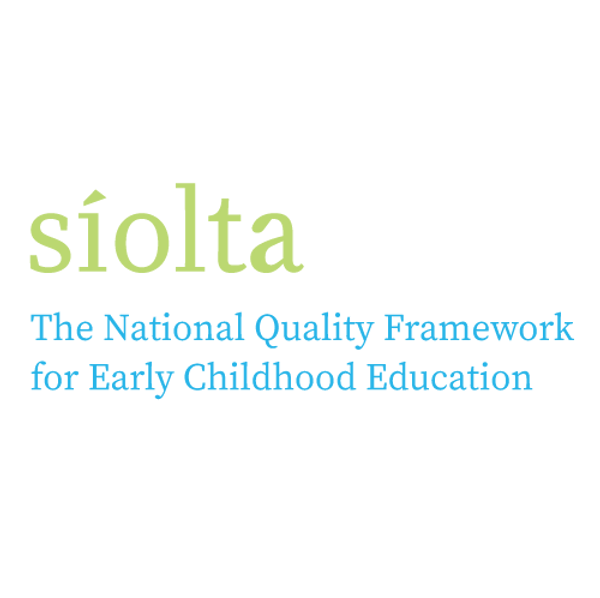
Siolta is the National Quality Framework for Early Childhood Education in Ireland. The contents of Siolta have been designed to assist all those concerned with the provision of early education in Ireland to participate in a developmental journey towards the improvement and enrichment of children’s early, and arguably most critical, life experiences.
Siolta is available for Childminders, Full Day Care services, Part-time daycare services,
pre-school services and infant classes.
Siolta consists of 12 Principals and 16 standards.
The 12 Principals of Síolta include:
The Value of Early Childhood
Early childhood is a significant and distinct time in life that must be nurtured, respected, valued and supported in it’s own right
Children First
The child’s individuality, strengths, rights and needs are central in the provision of quality early childhood experiences.
Parents
Parents are the primary educators of the child and have a pre-eminent role in promoting his/her well-being, learning and development.
Relationships
Responsive, sensitive and reciprocal relationships which are consistent over time, are essential to the wellbeing, learning and development of the young child.
Equality
Equality is an essential characteristic of quality early childhood care and education
Diversity
Quality early childhood settings acknowledge and respect diversity and ensure that all children and families have their individual, personal, cultural and linguistic identity validated.
Environments
The physical environment of the young child has a direct impact on his/her well-being, learning and development
Welfare
The safety, welfare and well-being of all children must be protected and promoted in all early childhood environments
Role of the Adult
The role of the adult in providing quality early childhood experiences is fundamental.
Teamwork
The provision of quality early childhood experiences requires cooperation, communication and mutual respect.
Pedagogy
Pedagogy in early childhood is expressed by curricula or programmes of activities which take a holistic approach to the development and learning of the child and reflect the inseparable nature of care and education.
Play
Play is central to the well-being, development and learning of the young child.
The 16 Síolta Standards are:
Standards 1
Rights of the Child
Standards 2
Environments
Standards 3
Parents and Families
Standards 4
Consultation
Standards 5
Interactions
Standards 6
Play
Standards 7
Curriculum
Standards 8
Planning and Evaluation
Standards 9
Health and Welfare
Standards 10
Organisation
Standards 11
Professional Practice
Standards 12
Communication
Standards 13
Transitions
Standards 14
Identity and Belonging
Standards 15
Legislation and Regulation
Standards 16
Community Involvement
